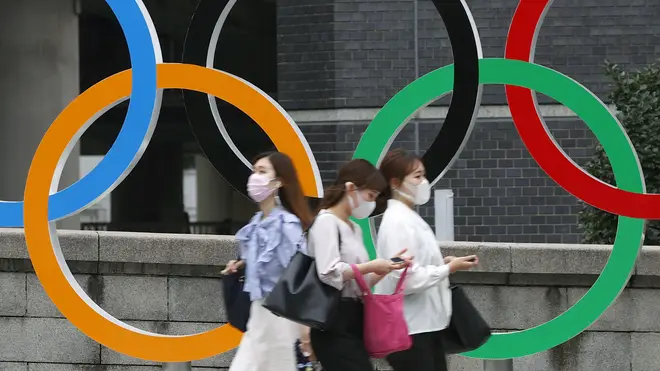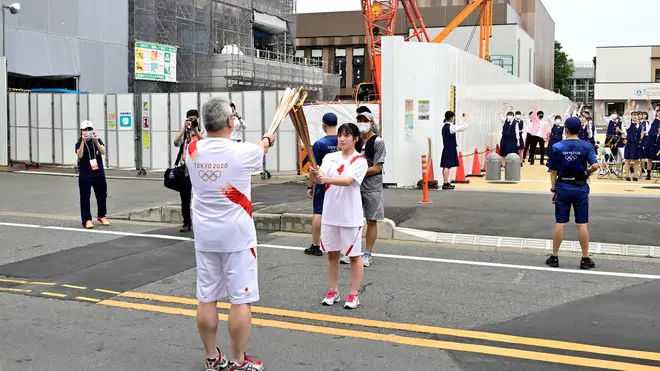
Richard Spurr 1am - 4am
8 July 2021, 07:12 | Updated: 8 July 2021, 11:01

Hopes of local crowds at the Olympics are fading as Japan is set to place Tokyo under a state of emergency that would last through the Games.
At a meeting with experts on Thursday morning, government officials proposed a plan to issue a state of emergency in Tokyo from next Monday to August 22 due to rising Covid-19 cases.
The Summer Olympics, already delayed a year by the pandemic, begin on July 23 and will finish on August 8.
The Games already will take place without foreign spectators, but the planned six-week state of emergency is likely to end the chances of a local audience.
It has already been announced that the Olympic torch relay in the capital will be scrapped over health concerns and instead, flame lighting ceremonies will be streamed online.
Read more: Worldwide Covid-19 death toll hits 4 million
A decision about fans is expected on Friday when local organisers meet with the International Olympic Committee (IOC) and other representatives.
Tokyo is currently under less-stringent measures that focus on shortened hours for bars and restaurants but have proven less effective at slowing the spread of the coronavirus.

Prime Minister Yoshihide Suga is to formally announce the emergency plans later on Thursday, hours after IOC President Thomas Bach was to land in Tokyo.
Mr Bach must self-isolate for three days in the IOC's five-star hotel in the Japanese capital before heading to Hiroshima, where heavy rain is threatening flooding.
The upcoming emergency will be the fourth for Tokyo since the pandemic began and is a last-minute change of plan made late on Wednesday after a meeting with experts who warned strongly against the government's soft approach.
Read more: Chris Whitty warns young people face 'significant amount more long Covid' this summer
Read more: Long Covid clinics for children offered by NHS England
Read more: Lifting restrictions will make public take Covid threat less seriously, study suggests
Tokyo reported 920 new cases on Wednesday, up from 714 last week and its highest since 1,010 on May 13.
The figure is in line with experts' earlier estimate that daily cases in Tokyo could hit 1,000 before the Games and could spike into thousands in August.
Kazuhiro Tateta, a Toho University infectious diseases expert, noted an earlier state of emergency in the spring came too late to prevent hospitals in Osaka from overflowing with patients and said another delay should not be allowed.
Ryuji Wakita, director-general of the National Institute of Infectious Diseases, noted that two-thirds of Japan's cases are from the Tokyo region and "our concern is the spread of the infections to neighbouring areas".
Experts also noted cases among younger, unvaccinated people are rising as Japan's inoculation drive loses steam due to supply uncertainty.
Just 15% of Japanese are fully vaccinated, low compared to 47.4% in the United States and almost 50% in Britain.
Nationwide, Japan has had about 810,000 infections and nearly 14,900 deaths.